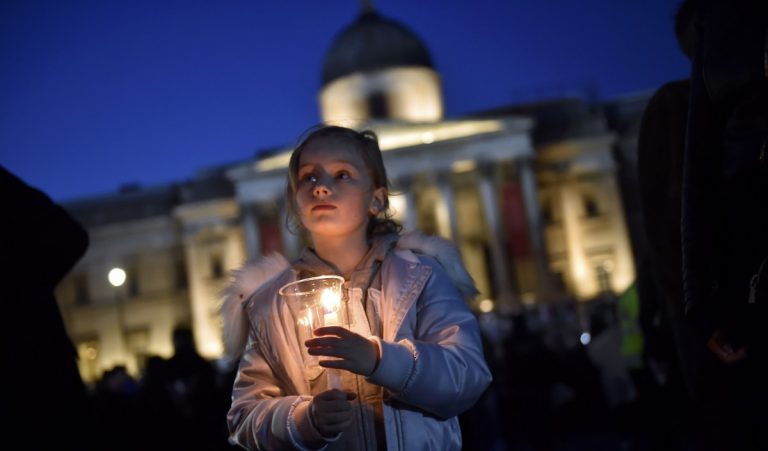
Students in London and their families back home still remember the panic and shock that rocked the capital when Wednesday’s attack near Parliament unfurled.
In what’s been described as the UK’s deadliest attack since 2005’s suicide bomb, British-born Khalid Masood plowed into pedestrians before crashing through the House of Parliament’s gates, causing hurt to 40 people and leaving four – including the attacker – dead.
In a vigil Thursday evening at Trafalgar Square, hundreds gathered to remember the victims.
A minute's silence held in Trafalgar Square at vigil to remember those killed in London terror attack https://t.co/k0iDPzxpzY pic.twitter.com/s6egZclGRT
— BBC Breaking News (@BBCBreaking) March 23, 2017
“These events have nothing to do with religion… this is pure terrorism,” Ali Raza, a 23-year-old student from London told Reuters.
The event shook students and their families, especially those studying abroad in London.
Christie Klima from New York’s Fordham University was one of them. Klima, who is doing a semester abroad in London, said her classroom is a stone’s throw from the location of the attack.
“I was sitting in class and had my phone in front of me and all of a sudden I got popups saying there is an attack near Parliament,” she told Fox8.
“You think the worst, you think oh my goodness, there is a going to be a bomb or a terror attack or a mass shooting.”
For her parents, it was a terrifying ordeal when they woke to the news, fearing the “worry every parent has when they send their child overseas” has happened.
But Christie’s mother, Jeanne Klima was reassured by Fordham’s email to all parents informing them that every student was accounted for and safe.
“That was my concern, not only my own daughter, but all the children studying overseas.”

A sign reading ‘London stands united’ is seen among the crowd in Trafalgar Square during a vigil held the day after the attack. Pic: Reuters/Hannah McKay
For Elon University’s Stefanie Millovic who is spending her spring semester as an intern at the House of Parliament, the whole event was surreal. Millovic is safe, but will not return to work until next week.
Travis Frain was not as lucky as Millovic – the politics student at Edge Hill University was among those injured, and is reported to have suffered fractures to his hand and leg. He was in London on an educational trip when he and some of his classmates became victims of the attack.
Frain said, however, that although he was hurt, “at the end of the day, it could have been a hell of a lot worse”.
London attack: Student 'hit head-on' by car on Westminster Bridge: Travis Frain suffered fractur.. #breakingnews https://t.co/V6gUzGEOi3
— Viral Marketer (@vm9871) March 23, 2017
Three French secondary school students on a school trip to London were also injured in the attack.
As London is a popular study destination, an attack like this is seen as likely to taint its image as a safe city and put a strain on tourism – and the impact on these students suggests this.
But key stakeholders maintain that this was an isolated incident, and praised the way London’s security services handled the attack.
The European Tourism Association urged for the attack to be viewed in the wider context, as part of a wider spectrum of fatalities that happen. It insisted that London will “still be one of the safest countries on earth to be a visitor.”
English UK, the national association of accredited English language centres, rained praise on the British police and security services’s “quick and effective” response.
“But we have been encouraged by the quick and effective response of our police and security services. Londoners are back at work today, sad, but determined that our city will not be stopped by this one random attack.”
However, while safety is assured, it is the post-attack anti-Muslim sentiment that worries students such as international political economy student at King’s College London, Azielia Anne.
“I feel a little worried because I saw some tweets targeted at Muslims. And in the midst of Brexit, there is a heavy anti-immigration tone and that’s a bit terrifying,” Azielia said.
Liked this? Then you’ll love these…
Canadian universities hold vigil for Quebec mosque shooting victims
Attack on Kenyan university shows higher education’s vulnerability to violence







